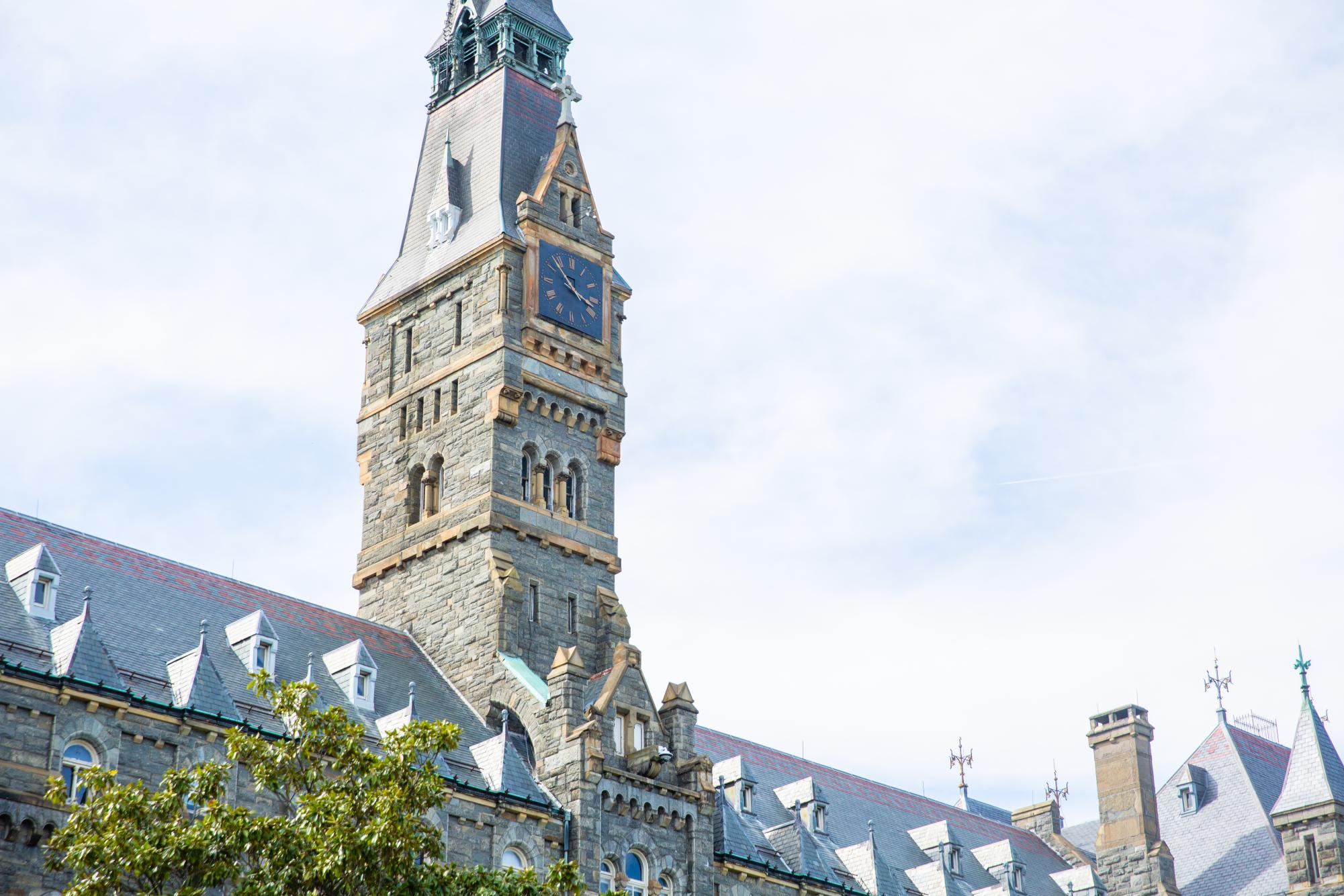A professor of Middle East studies highlighted Iran’s national security grand strategy and its evolving domestic debate during a Georgetown University event Sept. 15, where a university academic center announced a new undergraduate Iranian studies program.
The Alwaleed Center for Muslim-Christian Understanding (ACMCU), an academic center fostering interreligious understanding, hosted Vali Nasr, a professor of international affairs at Johns Hopkins University, to discuss his new book, “Iran’s Grand Strategy.” ACMCU director Nader Hashemi also announced an initiative in the School of Foreign Service (SFS) titled the Iran Project, a lecture and guest speaker program that aims to eventually expand into a certificate and minor in Iranian studies.

Hashemi said Nasr provided the opportunity to announce the new initiative for SFS students.
“Today we’re using his presence here to announce a new initiative at the School of Foreign Service at Georgetown called the Iran Project,” Hashemi said at the event. “It seeks to expand, deepen and enrich the study, teaching and public debate on Iran at Georgetown.”
The SFS currently only offers a minor in Persian language and culture, which briefly discusses Iranian history, culture and politics.
Nasr said it is important to look at Iran through the lens of the nation’s overarching objectives, as his book does.
“The idea of a grand strategy refers to the idea that the country has a broad objective or a broad security concern that it organizes its politics and its affairs around. It’s very clear that over the past 40 years, Iran has largely been organized around its national security interests,” Nasr said at the event. “Its economy, its politics, its journey are all built around this grand vision of how to maintain its independence from the United States. It’s very clear that looking at ideology or religion or theocracy does not actually explain the way in which the Islamic Republic has evolved and where it is heading.”
Nasr said he believes the 12-day conflict between Iran and Israel in June shows that Iran’s strategy is not sustainable.
“This latest war may show Iran that even though it still believes in that grand strategy, it can no longer prosecute it,” Nasr said. “It can also no longer prosecute it because the costs of this confrontation with the U.S. are not sustainable economically and militarily and because the Iranian public is no longer supportive of this strategy.”
Hashemi said he found the level of anti-Americanism in Iran confusing, especially when considering historical examples such as Vietnam.
“I’m trying to understand the depth of the anti-Americanism that resides within the political imagination of Iranian hardliners, particularly the supreme leader and his supporters,” Hashemi said. “Take Vietnam: 2 million people were killed from the Vietnam War as a result of American intervention. It’s a very different story. Relations are very warm; economic ties are very strong. You don’t see this level of anti-Americanism.”
Nasr said the Iranian public is increasingly debating and challenging Iran’s national priorities.
“I think we have to sort of distinguish between judgment and rationality,” Nasr said. “In other words, you could say that the Iranian judgment about what should be their national interest and whether it’s the correct national interest is now increasingly open to question and not just by outsiders, but actually by a lot of people within Iran.”
Nasr said Iran’s focus on protecting its national security and independence has been its focus since Iran’s founding.
“But what is very clear in the Islamic Republic is that it sees this task of protecting its national security as the most fundamental challenge that it faces,” Nasr said. “And the key question is who is it trying to protect its independence and national security from, and the answer to that is the United States.”
Nasr said unlike Vietnam, Iran has no incentive to reconcile its differences with the United States.
“Vietnam became interested in burying the hatchet with the U.S. after China invaded it in 1979,” Nasr said. “Iran does not face a similar kind of strategic threat. All the strategic threats that it faces are coming from the U.S.”
Hashemi said the new Iran Project at Georgetown will give students the chance to engage with Iranian and Middle East politics in a more thoughtful manner.
“Given the important role that Iran plays in the politics of the Middle East and the huge amount of news that it routinely generates, there’s a huge chasm between the news that Iran generates and the actual discussion in a serious, objective and scholarly way,” Hashemi said. “At Georgetown University, the Iran Project seeks to fill that chasm.”